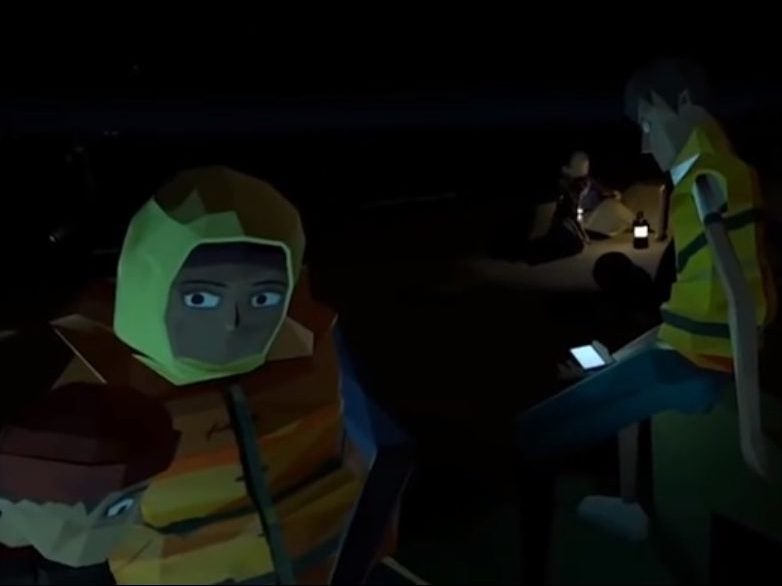
The BBC is disbanding its dedicated virtual reality team and moving away from creating video-game-style immersive storytelling experiences, which offered a new dimension to factual reporting.
A spokesperson for the corporation confirmed its VR hub is “wrapping up its production and commissioning”. Individual departments, including news, are now expected to develop their own VR ideas.
VR was once seen as an exciting new medium for factual storytelling that could open it up to a new audience, although the BBC has created fewer than 20 VR stories since it first started experimenting in 2016.
That year the hub helped produce We Wait (pictured), created from BBC News interviews with refugees, putting viewers “alongside a terrified Syrian family crossing the sea” in a computer-generated scenario.
In June this year it produced 1943 Berlin Blitz, putting viewers in a Lancaster bomber boarded by BBC reporter Wynford Vaughan-Thomas and a sound engineer in September 1943, with audio from the actual report.
Immersive experiences that place viewers at significant events in the past have been a favourite application for VR technology at the corporation.
Press Gazette understands BBC News will continue to use 360-degree video, often taken by drones, in its coverage, such as it used for its first “VR documentary series” Damming the Nile in February last year.
The VR hub has helped build up experience in the new technology across the BBC and has produced a guide to share what it learnt with the wider industry, according to a BBC spokesperson.
They said: “The VR Hub had funding for two years, so is now wrapping up its production and commissioning.
“It’s been an important part of our charter commitment to promote technological innovation and maintain a leading role in research and development which benefits the whole industry.
“We’re really proud to have produced some award-winning projects in that time, and we’ve learned valuable lessons about producing unforgettable virtual reality experiences.”
They added: “The BBC will continue to identify audience opportunities for VR, and departments like News will be able to use the learnings from the VR Hub when producing their own VR content in the future.”
Picture: BBC
Email pged@pressgazette.co.uk to point out mistakes, provide story tips or send in a letter for publication on our "Letters Page" blog
